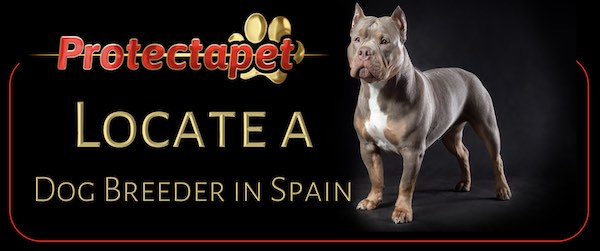Dog breeding starts well before any puppies are born. The breeder must make sure that the female and male dogs are in pristine health and condition for breeding. This involves several kinds of testing:
Conformation testing - ensures that the dogs meet the physical requirements for the breed. This includes structure and appearance as defined by the dog’s breed.
Temperament testing - measures how well a dog is able to interact with humans and their environment.
Health testing - looks for any disorders or diseases that could affect the integrity of the breed. Any malformation would disqualify a dog from being used for breeding purposes.
Genetic testing - ensures that a dog is pure-bred.
The Spanish Law of animal protection makes it illegal to “breed and trade in animals without the corresponding licences and permits”,
Search our Protectapet Dog Breeders Directory, While the Protectapet does not endorse, license or recommend breeders, we can help you locate a breeder in your area.
Pure bred dogs are dogs that have been born form parents and grandparents all of the same breed. The breeder’s association rules are the full blood genetics of a dog must be above 87.5%
There are 13 Spanish dog breeds recognised by the Spanish Royal Canine Society and at least one international kennel club.
If you are looking to buy a pure breed puppy, you need to think about which breed is suitable for you and your family. You will need to choose a breed that will work well with your lifestyle.
Here are a few questions to ask yourself before choosing the breed of dog that you want to take home.
The answers to all these questions will help you find the perfect breed of dog for you.
Spain does not have breed-specific bans, and all dog breeds are welcome in the country. However, there are restrictions on strong and aggressive dog breeds such as the Staffordshire Terrier, Pit Bull Terrier, Dogo Argentino, Akita Inu, Tosa Inu, Rottweiler, Fila Brasiliero and other powerful dog breeds.
